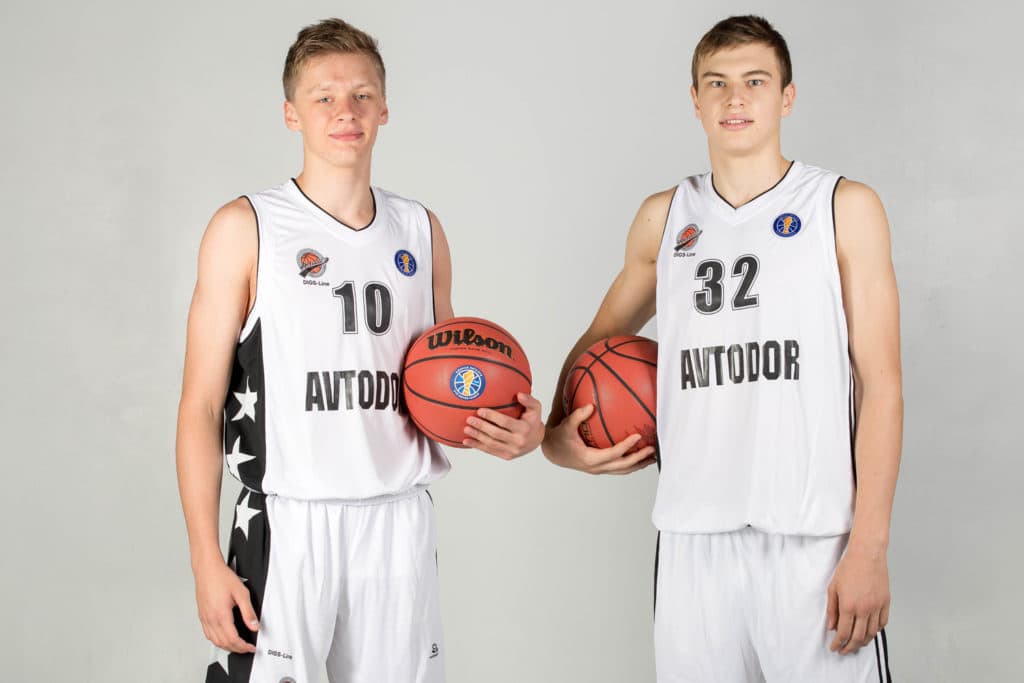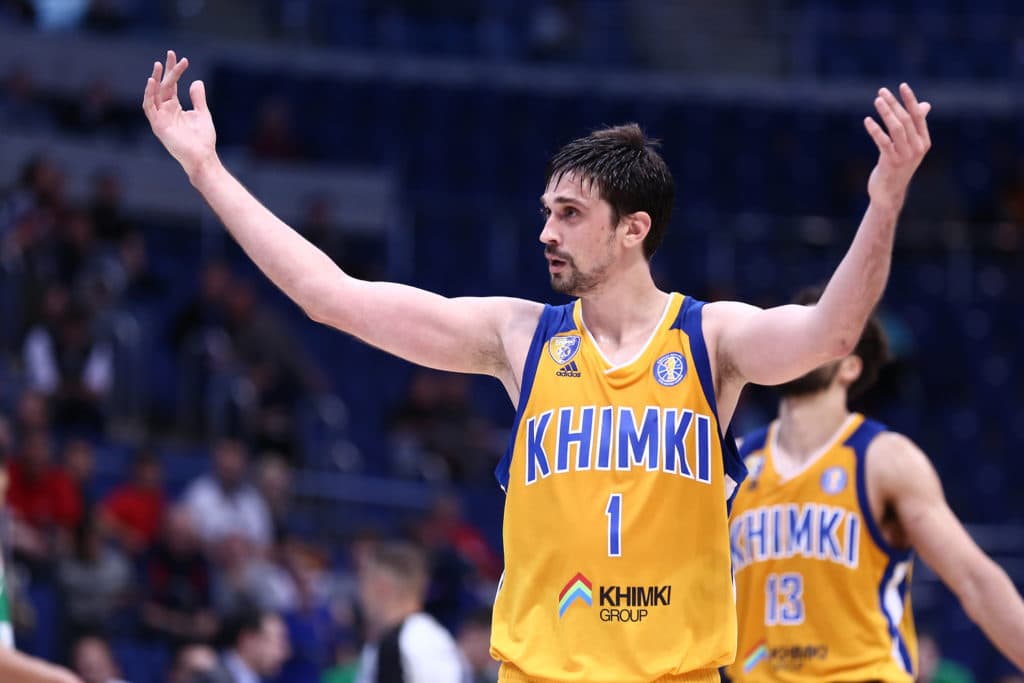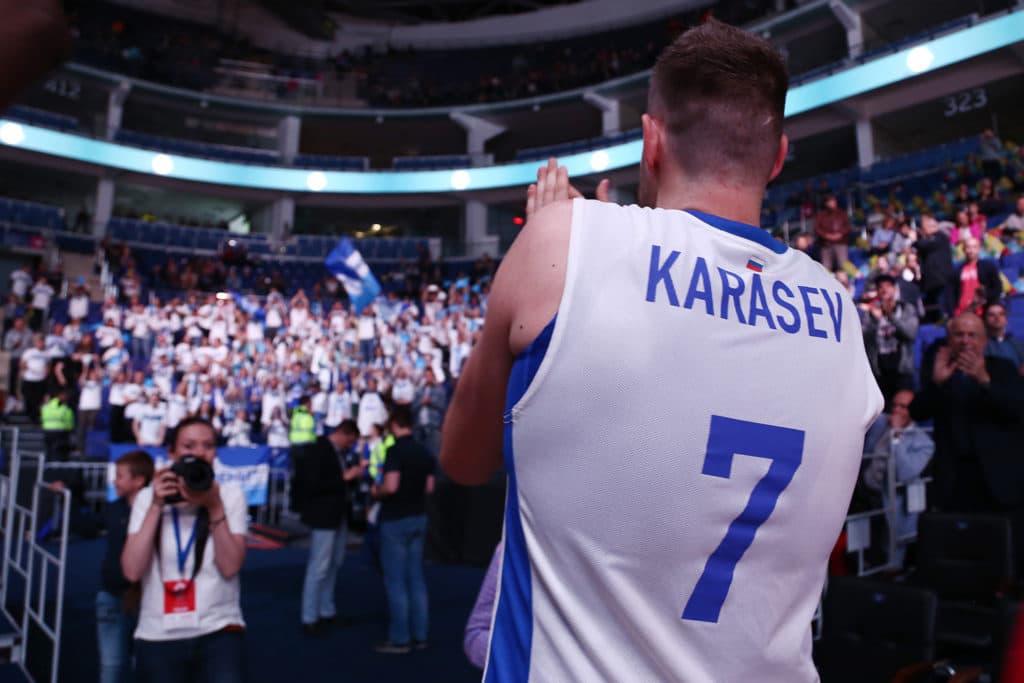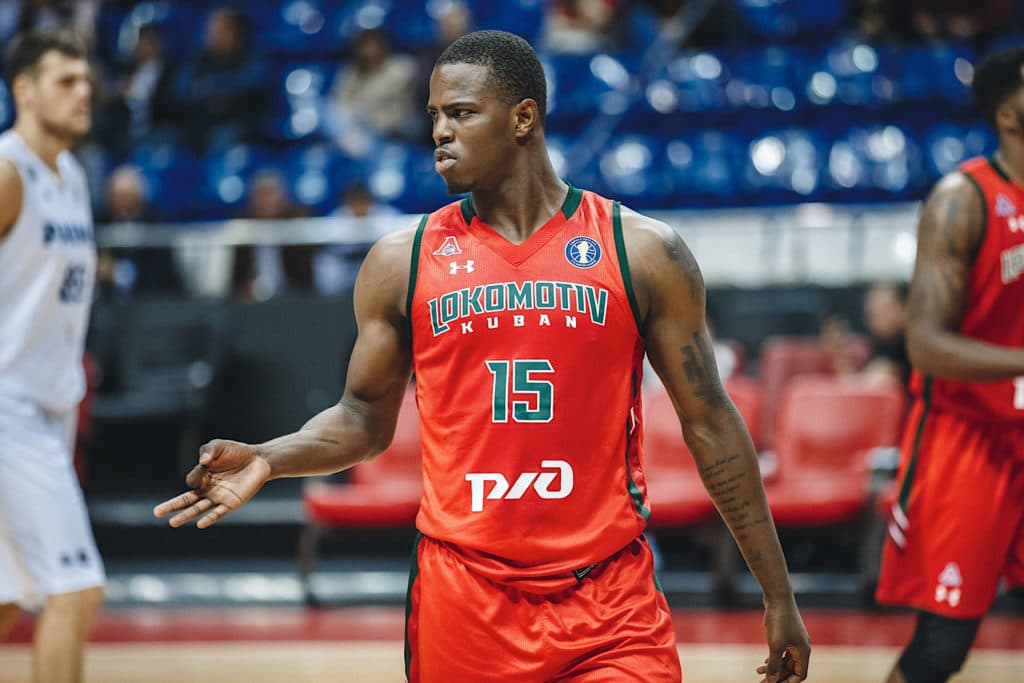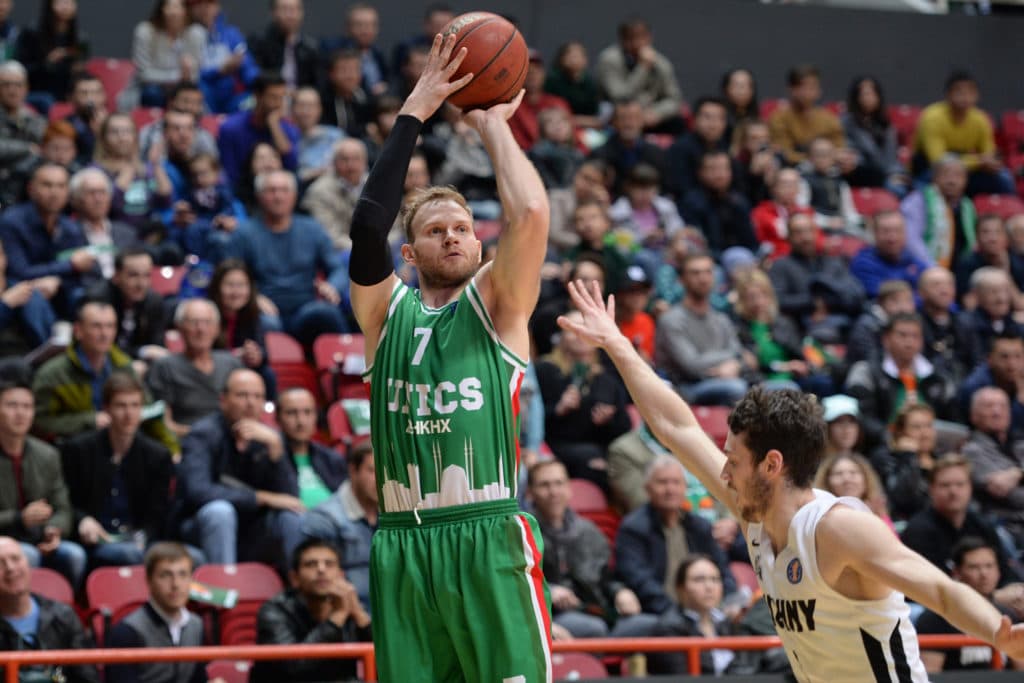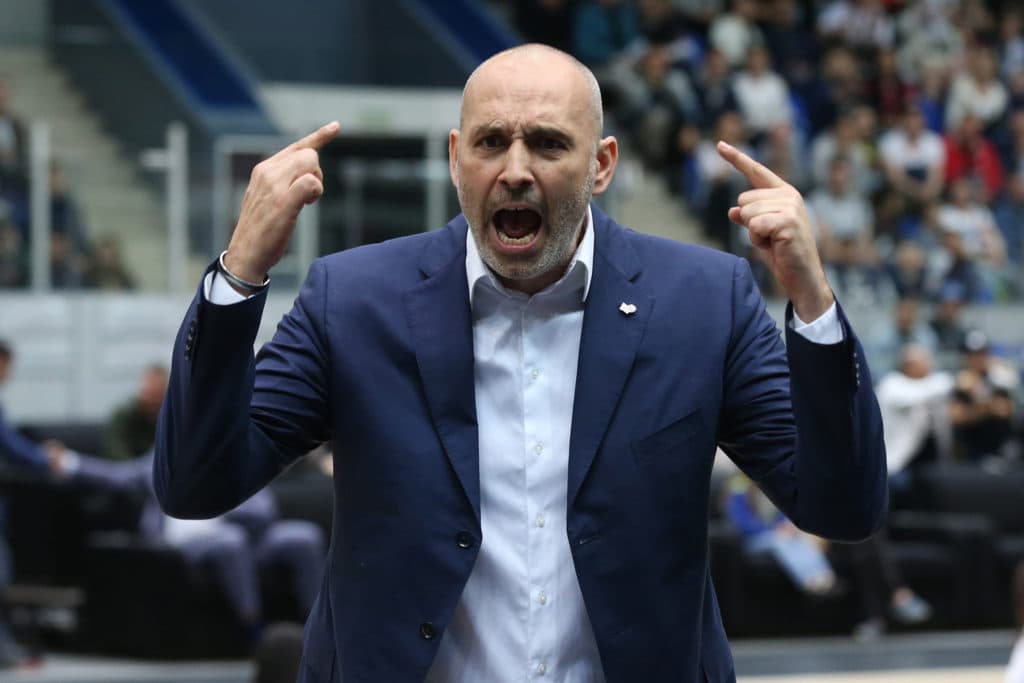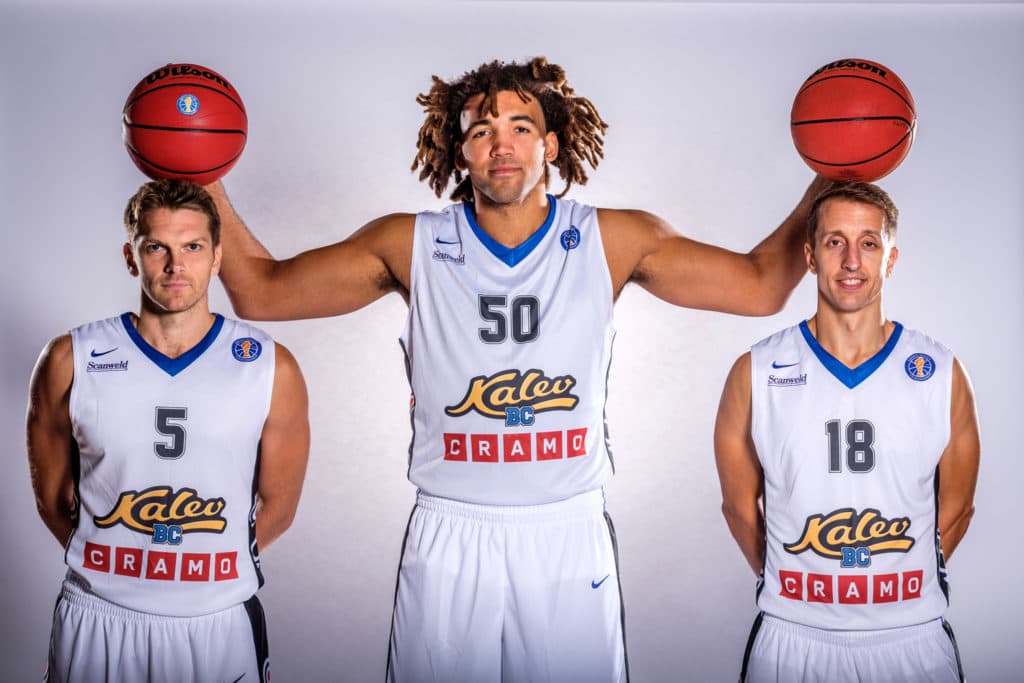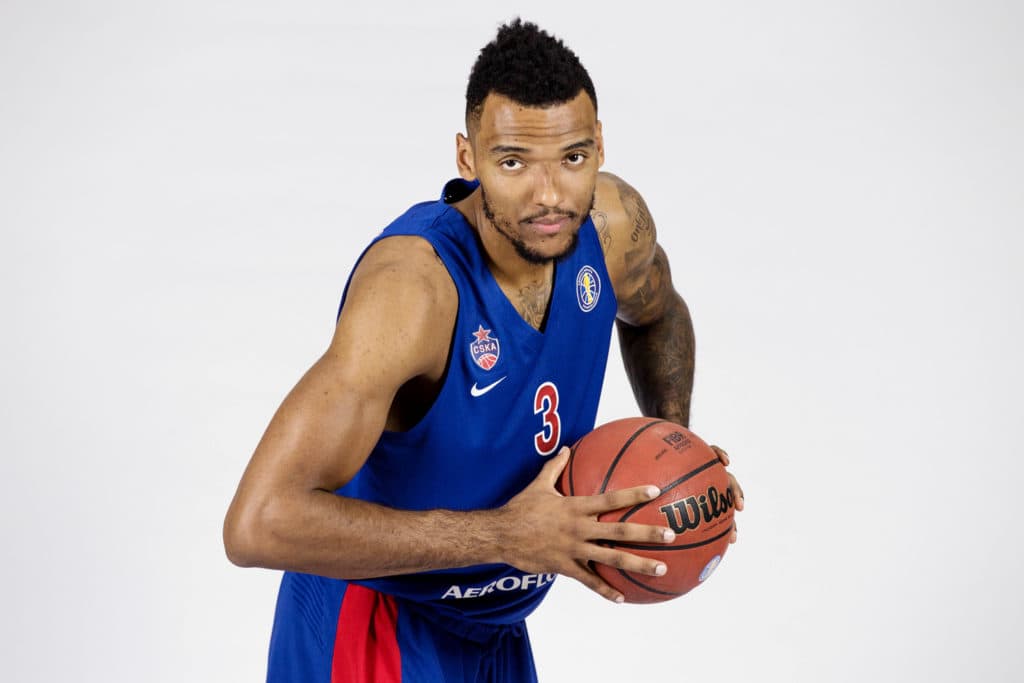There’s no lack of storylines as the VTB United League prepares for tip off on Friday. Season #10 is bubbling with unanswered questions, which will be up to the players, coaches and teams to answer. VTB-League.com has jotted down 20 of the biggest unknowns for the upcoming campaign.
Will UNICS once again dominate the regular season?
Kazan was nearly unstoppable last season in the VTB League. The Tatar club lost twice to CSKA, but defeated everyone else to finish with a 22-2 record. It won’t be easy to surpass or even match that feat. But UNICS is once again one of the League favorites. Dimitris Priftis has assembled an aggressive, athletic team, which will try to battle for a top-three finish.
Can Nizhny survive the grind of playing in multiple competitions?
Nizhny is on the verge of qualifying for the FIBA Champions League, advancing through two rounds of qualifying. An eight-point win over Padrubice (92-84) in the first game of the third round has the Russian club in the driver’s seat entering a decisive game two. The team, however, is already struggling to stay healthy, with both the players and coaches complaining about injuries. If the Black and White end up qualifying for the Champions League, the schedule will be nonstop as they juggle multiple competitions.
Nizhny Novgorod would add approximately four games to last season’s schedule by playing in the Champions League. That’s not an insignificant number, especially when you consider that unlike the FIBA Europe Cup, the Champions League does not sort teams geographically. Plus, the level of competition is much better (Nizhny will be playing top teams from France, Turkey, Germany and Italy, instead of weaker Macedonian and Hungarian competition). Given Nizhny’s growing injury concerns, the schedule could become a major factor. Avtodor (two years ago) and Enisey (last season) could not pass the test and ultimately crashed both in Europe and in the VTB League.
How much playing time will Avtodor’s young players receive?
During the offseason, Avtodor president Vladimir Rodionov said the club would be dependent on an infusion of young talent. According to Rodionov, the Black and White will frequently use young Russian talent at the highest level of competition. For many, the strategy has provoked a great deal of skepticism, but Avtodor has exceeded expectations more than once in the past. Now it’s up to youngsters like Nikita Mikhailovsky, Anton Kvitkovsky, Alexander Petenev and others. They are certain to get opportunities.
Who will challenge Alexey Shved for the scoring title?
Shved won the scoring title by a landslide last season (23.6 ppg vs. Isaiah Briscoe’s 22.0 ppg) and the Khimki guard will be the favorite once again to bring home the crown this season.
So far, it’s hard to see who will challenge him. Loko signed the talented Isaiah Whitehead, but Sasa Obradovic’s system does not encourage big offensive numbers from a single player. CSKA has De Colo and Rodriguez, but they are unlikely to receive as many shot attempts as Shved. Zenit signed Jennings, but he needs time to adapt to European basketball. Errick McCollum might surprise, but he’s yet to put up big numbers for UNICS in the preseason.
The biggest threat may come from teams lower in the standings. Several stars are certain to emerge this season. Perhaps it will be McKenzie Moore at Avtodor or Markel Starks at Zielona Gora. Nizhny Novgorod’s Kendrick Perry and Kalev’s Ivan Almeida are also expected to do damage.
We’ll have to wait until the games begin to see if anyone can match Alexey Shved’s firepower.
Which young player will break out on PARMA’s roster?
Four players on PARMA’s roster are debuting in professional basketball this season. Three of them are Americans (Kelly, Humphrey, Justice), who finished their collegiate careers in the spring. Platunov is the other, a promising player from PARMA’s youth team. Judging by preseason games, they will all get playing time. Kodi Justice looks like the biggest contributor so far. The skinny guard has an excellent three-point shot and feels comfortable in Perm’s run-and-gun system. He’s the top candidate to lead the team in scoring this season.
Will Sergey Karasev bounce back?
The Russian forward had a very successful return to the VTB United League two season ago, establishing himself as a leader at Zenit. But last season was a definite sophomore slump, if you will. Karasev was supposed to be the star in St. Petersburg, but struggled to fit the role. His scoring dropped (14.7 vs. 16.0), his field-goal percentage declined (36.7% vs. 44.4%) and he also turned the ball over more (2.0 vs. 1.7), while recording fewer assists (2.7 vs. 3.1). Even worse, his biggest slump came during the VTB League playoffs and Final Four. Karasev shot lights-out from the free-throw line (31-31), but turned in a measly 28.6% performance from the field (14-49). Let’s hope his statistical decline was only temporary and we’ll see the old Karasev back at Zenit.
How long will Khimki survive double duty on the court?
Last season, Khimki struggled at times with the rigor of competing in both the EuroLeague and VTB League. There were many disappointing setbacks–take the infamous loss to Kalev. A similar scenario could play out again this season. The Yellow and Blue have a deeper roster, but will once again be dependent on Shved. Because of fatigue and injuries, Shved missed five regular season games in 2017-18. Without their leader, Moscow Region often struggled against weaker competition.
Will Isaiah Whitehead dominate on European courts?
Whitehead’s move from Brooklyn to Lokomotiv was one of the biggest signings of the offseason. The guard put up big numbers in America, impressing in the NBA and completely dominating the G-League.
On most European clubs, Whitehead would lead the offense and smash scoring records. But Kuban’s system has other values. For the past two seasons, Loko has become known for its slow tempo, gritty defense and methodical halfcourt offense. Meanwhile, under Obradovic no individual player has even come close to contending for the scoring title (Jones finished 25th in 2017, Collins 14th in 2018). It will be interesting to see how Whitehead responds to the conditions in Krasnodar, given his superstar status.
Can Tsmoki-Minsk reach the playoffs?
The Belarusians have never made the playoffs, despite very nearly breaking the curse last season when they missed out on 8th place due to the tiebreaker. Tsmoki strengthened the roster this offseason, with a quartet of foreign players expected to lead the way (Sarikopulos, Shelton, Govens, Moody) and support from Liutych and Kudrautsau.
Will Sasa Obradovic be able to handle Loko’s star-studded roster?
Krasnodar made the biggest waves in the offseason, adding star power and depth. The newcomers include a French national team center (Fall), one of the most talented young players in Europe (Ponitka), former NBA’ers (Johnson, Wright, Whitehead) and veterans in Fridzon and McLean.
Obradovic has never had this much firepower at his disposal, not even when he coached Alba in the EuroLeague. And there is a level of skepticism surrounding the Serbian coach’s ability to control the team. Obradovic prefers a traditional approach to the game (big centers, suffocating defense, slow halfcourt offense), which doesn’t always mesh with star players. The first EuroCup game of the season raised even more questions. Loko was barely able to overcome a team that finished 11th in the Polish league last season!
Who will be the point guard in Kazan?
With Quino Colom’s departure, UNICS has an opening at the point guard position. Dimitris Priftis has four players capable of playing the position (Ponkrashov, McCollum, Henry, Sergeev). But Ponkrashov is the only true playmaker of the bunch and his assist totals have declined over the past three seasons. Of the Big 5 teams, UNICS is likely to feature the biggest shift in playing style this season. With Colom at the helm, the team emphasized halfcourt offense and pick-and-rolls. Now with Henry and McCollum on the roster, the Greens will be more athletic, quicker and draw up more “iso” plays.
Can Ivan Ukhov crack CSKA’s rotation?
Ukhov’s move to CSKA stirred a lot of debate. Many predicted the young Russian guard would be stuck riding the pine all season. But the Gomelsky Cup demonstrated that the situation is not so hopeless. Ukhov took advantage of injuries to Higgins and Kulagin and earned a significant amount of playing time at the preseason tourney. It’s safe to say he made a nice impression. The CSKA newcomer demonstrated enviable hustle and wasn’t afraid to take charge, playing with impressive confidence alongside his star teammates.
Will Nizhny’s American expats get along with Zoran Lukic?
Zoran Lukic is known for his demanding approach. The strict coach has often clashed with player’s ambitions and American players are frequently at the center of the conflict. In four seasons at Nizhny Novgorod, the Serb has signed 12 American players, but only two have lasted a full season (Obi Trotter in 2012-13 and Dijon Thompson in 2013-14). Last season, both Sterling Gibbs and Eric McCree ultimately did not play a single game in the VTB League.
Now Nizhny Novgorod has three Americans on the roster: Perry, Odom and Broussard. The first two have quickly taken leadership roles and enjoyed significant playing time. Broussard, however, has struggled to adapt and is a likely candidate to be cut.
Will Enisey benefit from its home court?
Only once has Enisey finished the season with a winning record at home in the VTB United League (2016-17, 8-5). Geography should work in the Blue and White’s favor, but because of regular European cup appearances, Krasnoyarsk’s isolated location has only complicated matters. In the upcoming season, Enisey will be focused solely on the VTB League, which will help the team’s playoff chances. The home court will be one of Oleg Okulov’s main advantages. The Siberians have historically won a little more than 40% of their home games in the League (41.5%, 34-48), but this season should boost those numbers.
Can Kalev uncover new stars?
We’ve become accustomed to Kalev serving as a springboard for careers. Isaiah Briscoe is an excellent example. During his year in Estonia, the American went from being a largely unknown college player to signing an NBA deal. The team has several more ambitious players on this year’s roster, who could break out in a big way. The biggest contenders are forwards Ivan Almeida and Chavaughn Lewis. Both players have terrific athleticism and size, which they will try to convert into impressive stats at Kalev.
Can Brandon Jennings become a star in the VTB League with Zenit?
Zenit, perhaps, is the only top team in the League, which has had repeated trouble at the point guard position. For three out of the team’s four seasons of existence, the starting point guards have been quite pedestrian (Hodge, Dowdell, Reynolds). Only once did St. Petersburg attract an elite playmaker (Markovic), which immediately elevated the club into EuroLeague contention. Last season, the northerners hoped Nicolas Laprovittola would be a star, but the Argentinian never clicked with head coach Vasily Karasev.
During the offseason, St. Petersburg made another attempt to land a star point guard. Brandon Jennings move to Zenit from the NBA looks very promising. Expectations are high–now he needs to prove it on the court. But it would be foolish to expect miracles from the newcomer. Vasily Karasev admitted in an interview that Jennings needs time to adapt to the team and European basketball.
Will Joel Bolomboy adjust to European basketball?
At the recent Gomelsky Cup, Moscow spectators had a chance to see Bolomboy live for the first time. The results were not overwhelming. The future Russian citizen was outperformed by fellow big men Hines and Hunter on the court. Bolomboy will need time to adjust to European basketball and individual practices. But he plays hard and is in excellent shape. He hasn’t been registered yet for VTB League competition (Bolomboy is waiting for a decision on his Russian passport), but it’s possible he’ll receive the most playing time in this competition in the upcoming season, which should help him continue to progress.
Can Emil Rajkovic work wonders in Astana?
Emil Rajkovic has a reputation as a coach who can achieve results despite limited talent (see his work at Rabotnicki, Skopje and elsewhere). The Kazakh club desperately need someone like him. The Yellow and Blue face a challenging season. The team lost virtually all of its international stars and two best Kazakh players in Kolesnikov and Ponomarev. Astana has only four foreign players to begin the season, who are expected to lead the team in minutes. Management promises to sign two more foreigners, but the team can’t afford a slow start to the season.
Will VEF once again contend for a playoff spot?
From year to year, VEF has lost key players, but remained competitive in the League. Last season, Riga even advanced to the postseason. In the upcoming campaign, the Latvians will once again feature a blend of foreign and domestic talent. Though the roster suggests a challenging season ahead, history has shown that VEF almost always exceeds expectations.
What should we expect from League newcomers Zielona Gora?
Poland’s Zielona Gora decision to enter the VTB League meant sacrificing an appearance in a European cup. It was a bold move in every sense of the word. As far as the competition on the court is concerned, nothing will be easy for the team. The Greens have an interesting roster, featuring talented Poles (Sokolowski, Zamojski, Koszarek, Hrycaniuk), experienced Balkan players (Planinic, Savovic, Sakic) and promising Americans (DeVoe and Starks). But any roster would struggle with their brutal schedule. The Polish team will compete in both the domestic championship and the VTB League, which means 56 games in seven months, the same as a EuroLeague team. That’s no easy task.















